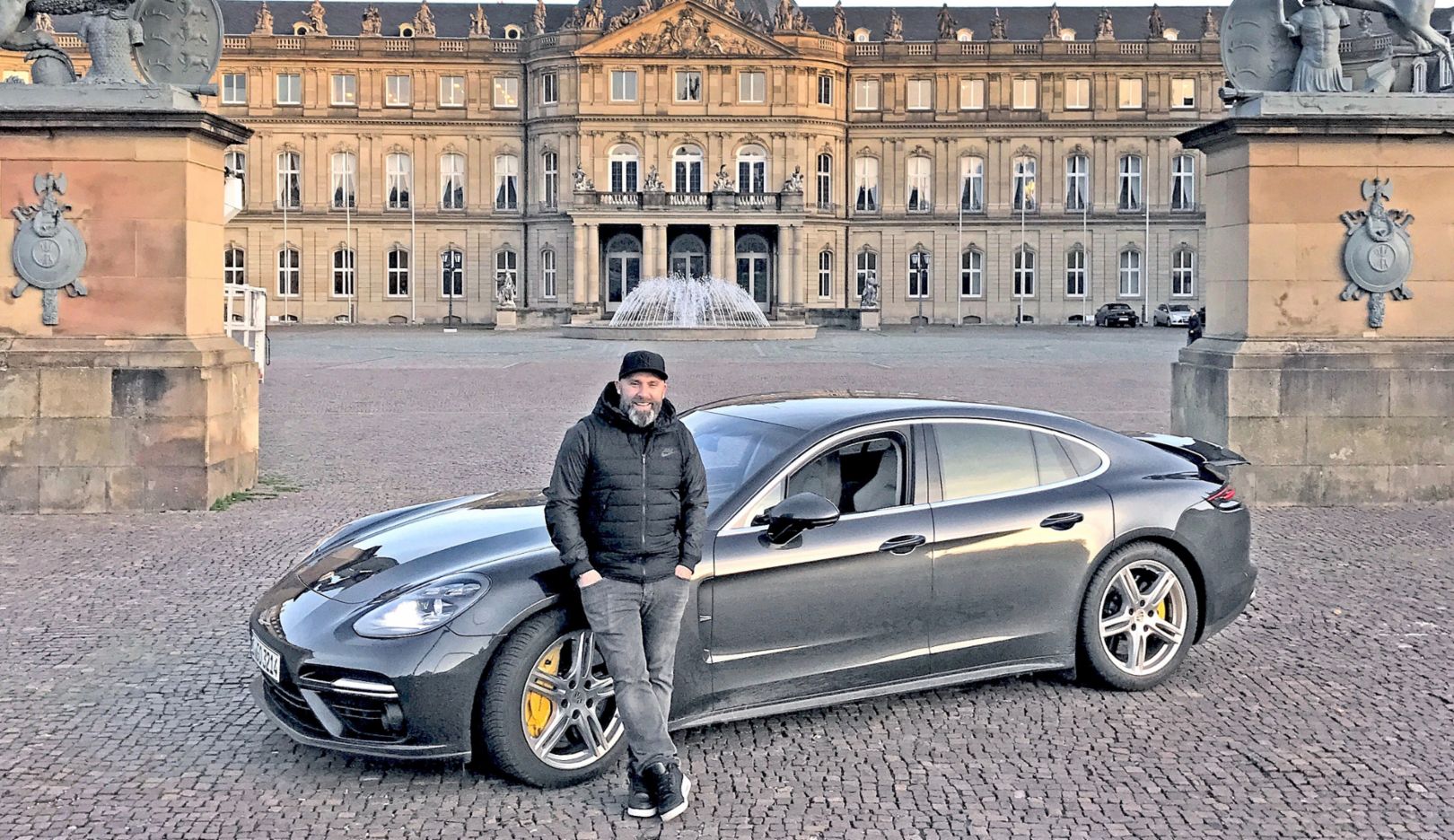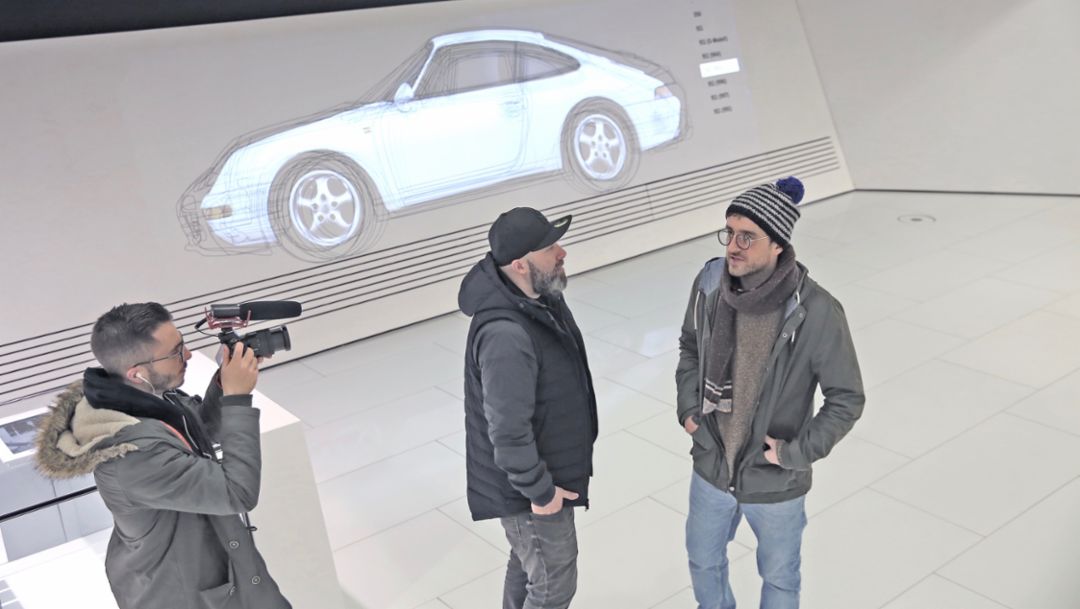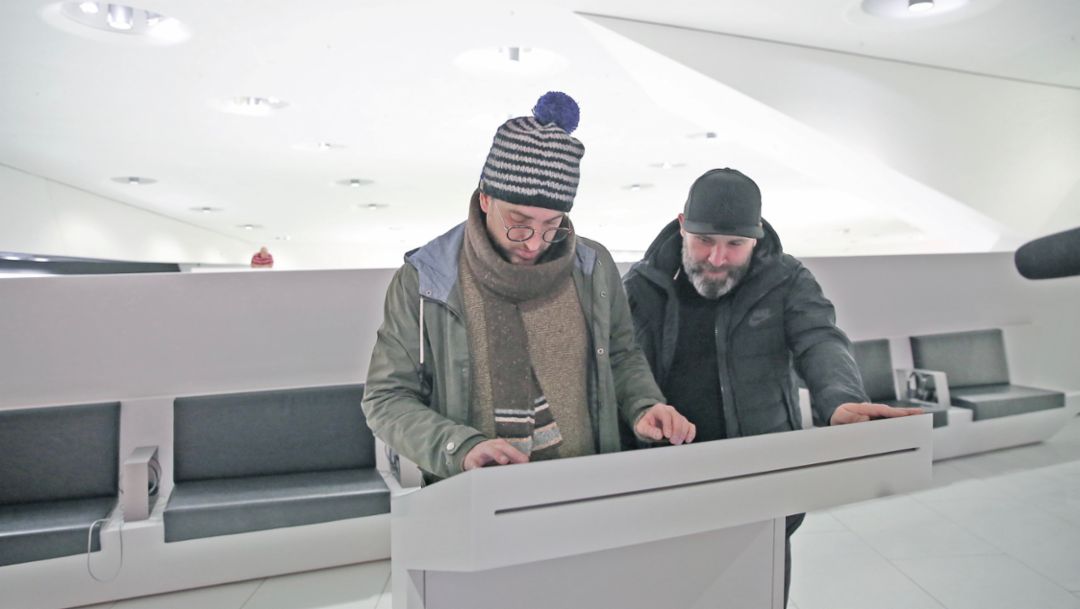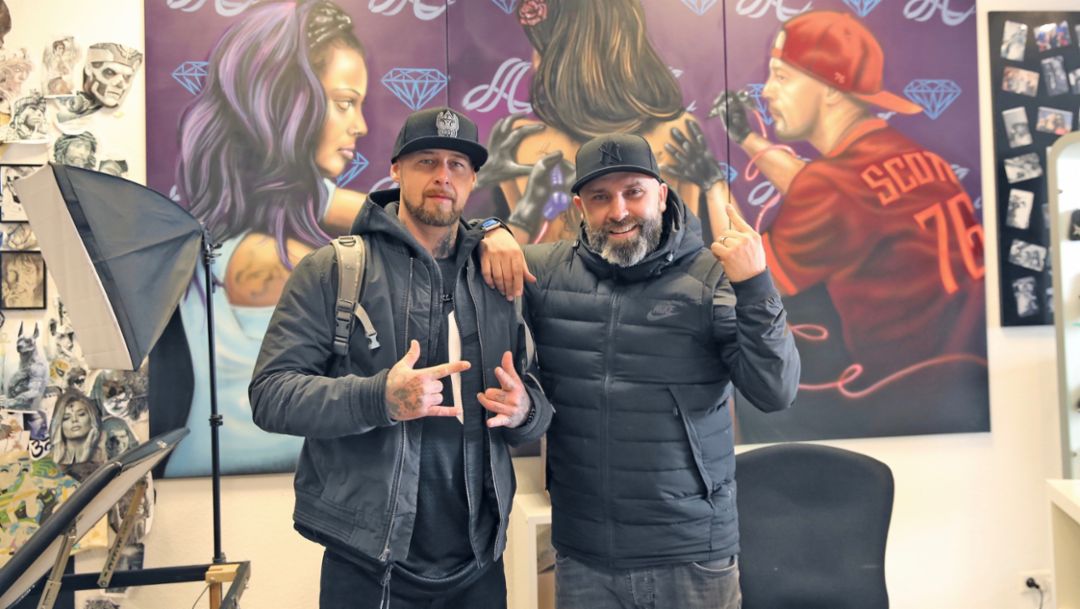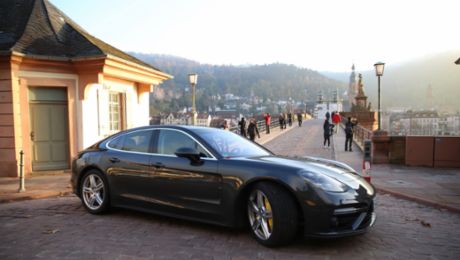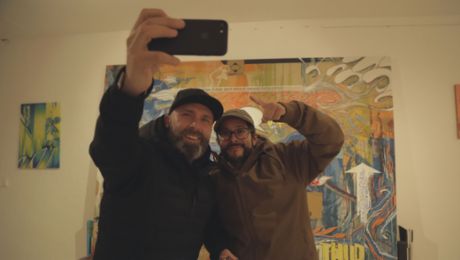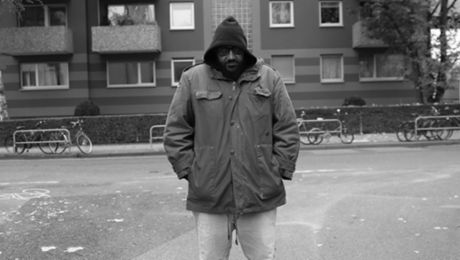Six cities, ten artists, a car and a good deal of rap: In a series of guest interviews on Porsche Newsroom, Niko Hüls, boss of the German hip-hop magazine Backspin, reports on his road trip across Germany. More impressions can be found on Instagram and Twitter using the hashtag #porschexbackspin as well as on the BACKSPIN TV YouTube channel.
Stuttgart is not only the home of Porsche, but is also an integral part of German hip-hop history. Since the first hip-hop wedding in the late 1990s, the city on the Neckar River is regarded as one of the capitals of the scene – as the “mother city”. “One for the rap, two for the movement. Shaped by your surroundings from the cradle. It’s not where you are, it’s what you do – welcome to the mother city!” – Massive Töne featured this rap on their debut album “Kopfnicker” in 1996. Even this early work featured cameos from Freundeskreis frontman, Max Herre, and the “Reimemonster” Afrob, fellow protagonists of the Stuttgart rap scene alongside Die Fantastischen Vier and Joy Denalane. In 1992 they founded a collaboration of artists under the name of “Kolchose”, a grouping that has been at the heart of the Stuttgart street culture scene from then to the present day. In 2017, “Kolchose” celebrated its 25th anniversary in the Palais at the Stuttgart City Museum.
One for the rap...
On my road trip across Germany in the Porsche Panamera, it was no easy task choosing who to talk to from this pool of creativity and history. I decided on Wasilios Ntuanoglu and Scotty76 because, in my opinion, they hold prominent roles in representing the four main elements of hip-hop, and they also hold the Stuttgart-based movement close to their hearts.
Wasilios Ntuanoglu, better known as Wasi or Duan Wasi, was one of the founding members of Massive Töne in his role as MC and producer. To me, “Kopfnicker” and “Überfall” were two of the most important hip-hop records of the 1990s. As a musical mastermind, Duan Wasi has shaped Stuttgart’s hip-hop sound like no other and has been the inspiration for numerous German hip-hop albums in the years that followed.
My trip to the roots alongside the former Massive Töne producer could only take place in locations where timeless quality is a trademark: the Stuttgart City Museum and the Porsche Museum. A journey in time through the history of Porsche and the history of hip-hop in Stuttgart.
...two for the movement...
A high point during our joint visit to the Porsche Museum – in addition, of course, to the 80 or so exhibits – was Porsche in the Mix, the interactive sound installation with authentic engine sounds from different Porsche models. Their unique sound aesthetics impressed the artist and producer Duan Wasi to such an extent that the idea to develop this further was born.
Just like the veteran Stuttgart artist, Porsche keeps its history alive. On our personalised tour, Wasi and I had the opportunity to visit the workshop, to learn more about the concept of the rolling museum and to look behind the scenes of the Porsche Archive.
...shaped by your surroundings from the cradle
The “Hall of Fame” in Bad Cannstatt is an archive of sorts, located directly under the King Charles Bridge on the grounds of the “Wasen” festival site. For Scotty76, a visit to this place is something of a pilgrimage for fans of hip-hop. The Stuttgart native is the second guest of the day to grace the passenger seat of my Porsche Panamera. To insiders, he is only a byword for German hip-hop history at first glance – yet he embodies precisely what hip-hop stands for more than just about anyone else: living a culture. The proof is written on his body: “Hip-hop is my life”.
He is considered to be a multi-talented member of the scene, as one of the most influential b-boys and graffiti artists from the southwest. Scotty76 danced at all levels of hip-hop from an early stage, lived through his own ups and downs and can today put his style and the influence that hip-hop has had on his life into practice in his very own tattoo studio “The Art of Ink”. Because, as they say in the mother city: It’s not where you are, it’s what you do.
#WorkDriveBalance & road trip playlist
No matter whether you’re stuck in a jam or you’ve got the road to yourself, music is vital for a good work-drive balance – just like the right kind of car, because enjoyment behind the wheel can turn a stressful work trip into a positive experience. The Panamera is both a comfortable limousine and a sports car – the perfect vehicle for the Porsche Hip-Hop Tour. In order to give you the right work-drive balance, Niko Hüls has put together a playlist, upon which you will find “Eimsbush bis 0711“ and “Wenn der Vorhang fällt“ by Freundeskreis, as well as “Unterschied“ by Massive Töne, all out of Stuttgart.
Save the date
While upon his road trip, Niko Hüls met many interesting characters, had in-depth discussions and gathered a great deal of information about the history of German hip-hop. You will be able to see the results in a video documentary co-produced by Porsche and Backspin TV: “Back to Tape” will be released in Spring 2018.
The author
Niko Hüls a.k.a. Niko BACKSPIN has been a fan of hip-hop since the early nineties. It was around the turn of the millennium that he made his passion into his job: Journalist, moderator and boss of BACKSPIN, Niko busies himself with urban youth culture and is always on the lookout for good stories and interesting people. Hip-hop as an art form and approach to life is Niko’s philosophy.
Consumption data
Panamera Turbo: Fuel consumption combined 9.4 – 9.3 l/100 km; CO2 emissions 214 – 212 g/km
